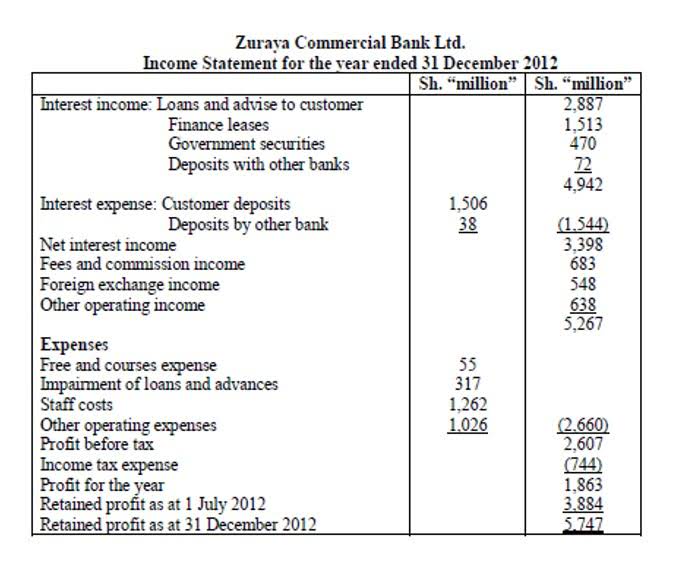
This not only ensures compliance with legal standards but also positions the firm as a trustworthy and reliable partner in the eyes of current and prospective clients. In 1994, Matter of Cooperman [83 NY2d 465, 611 NYS2d 465 (1994)], invalidated retainer agreements providing for non-refundable retainer fees. Some critics have argued that the reasoning of Cooperman would require lawyers to deposit https://www.bookstime.com/ advance fee payments in escrow, but this notion finds little support in the case law. In the seven years since Cooperman was decided, no New York court has held, even in dicta, that advance fee payments should or must be held in escrow. Indeed, such a dramatic change in New York law and practice would probably wreak havoc on the bar and have dire and unforeseen consequences for many clients.

I love TrustBooks!
A retainer fee payment, personal injury settlement, and insurance payout—these are all situations where a lawyer needs to use trust accounting. Commingling is found where the lawyer fails to maintain the client’s funds separate and apart from the lawyer’s. (a) In those jurisdictions where clients’ funds need not be segregated into a separate account for each client, (e.g., California) the pivotal issue is whether the lawyer has commingled his/her own funds with the client trust funds. All trust monies were not deposited in the trust account as quickly as reasonably possible.If a check is provided to the attorney as payment of a settlement for the benefit of that attorney’s client, it should be deposited at once into the trust account. If the check is not deposited for a significant period of time and the check goes stale, that might effectively mean that monies that were meant to be held in escrow are no longer available for deposit. The attorney has left funds in the trust account that are no longer being held in trust for the client.This is actually more common than one might expect.
Funds that should never be placed in a client trust account
- For example, if a settlement involves certain monies being designated by the settling parties as attorney’s fees, that sum should be moved out of trust reasonably quickly.
- Ensuring that every transaction is properly documented helps in demonstrating compliance during audits or investigations.
- “[t]he mere fact that the balance in an attorney’s trust account has fallen below the total amounts deposited in and purportedly held in trust, supports the conclusion of misappropriation.”
- Look for software that offers detailed record-keeping, automated reconciliation features, and robust reporting capabilities.
- To ensure that a lawyer does not violate any of the trust account regulations stipulated by the state bar association, they must record all transactions to and from the trust account in a timely manner.
- This ensures that funds are kept safe and managed with full transparency.
Detailed and Accurate Record-keeping is a cornerstone of trust account management. State regulations often specify the types of records that must be maintained, the format, and the duration for which they should be kept. Ensuring that every transaction is properly documented helps in demonstrating compliance during audits or investigations. While trust accounting seems like a relatively straightforward concept, keeping track of client trusts can get complicated if you’re managing accounts for multiple clients. Errors can leading to malpractice suits, so many attorneys choose to structure their fees and payment plans to avoid using their trust accounts. This article will demystify trust accounting for lawyers, covering everything from tips and best practices to creating your process.

Accounting and Bookkeeping Best Practices for Law Firms
- A trust account is a special bank account that a lawyer or law firm must maintain in order to receive and hold money on behalf of their clients or third parties.
- Let’s spend some time demystifying trust accounting for law firms by defining some of the key terms and answer some of the most common questions that arise when it comes to client funds and trust accounts for law firms.
- The section below goes over the following steps you need to take to set up a trust account in QuickBooks Online and Clio.
- When done correctly and consistently, legal accounting can help law firms better manage expenses and costs and identify opportunities for increasing revenue.
- Note that the category of “personal funds” includes funds that are used by the law firm itself.
- Start your journey towards impeccable trust accounting and enhanced operational efficiency by trying out RunSensible’s Free Trial today.
Creditors must adhere to strict timelines for filing claims against the estate. The first requires creditors to submit claims within one year of the decedent’s death. A secondary statute allows the Executor to begin paying valid claims after six months, assuming the estate is solvent based on claims received by that time. Importantly, unless a debt was co-signed or guaranteed, neither the Executor nor the beneficiaries are liable for the decedent’s debts. Improve cash flow, generate cost savings, create back-office efficiencies, and get paid faster.

Who Controls Disbarred Lawyer’s Trust Account? — Proposed Amendments to DR 9-102(G)
For example, if a settlement involves certain monies being designated by the settling parties as attorney’s fees, that sum should be moved out of trust reasonably quickly. Leaving the funds in the trust account is inappropriate because the monies do not belong to the client; in other words, this would actually be an example of maintaining the attorney’s own money in that attorney’s trust account. What exactly is a New Jersey random audit of an attorney trust account like? While there is no single formula, there are patterns that emerge when our law firm handles this sort of representation.

What Is Trust Accounting Software?
- Regardless of what type of law you choose to practice, where you choose to live or what size law firm you end up starting or joining, there is one accounting feature that no lawyer is going to be able to avoid…and nor will they want to.
- These funds must be held until they are used for a specific client’s case, and cannot be accessed any earlier.
- Understanding the benefits of trust accounting is a fundamental part of running a successful law firm, since having at least one client trust account is a common part of practicing law.
- It simplifies the complex process and makes it accessible to legal practitioners who may not have extensive accounting knowledge.
- This is what turns off many law firms from accepting client retainers — that, and the (up to now) complex bookkeeping that maintaining a trust account requires.
- With the rise in the use of revocable living trusts in estate planning, trustees often step into the role of Executor if the probate estate is insufficient to cover all claims.
- I had to have the knowledge and force QuickBooks to do what I believed my state’s bar required of my firm for our trust accounts.
Depending on the trust accounting rules and regulations in your jurisdiction, if the sum is large enough and belongs to a single client, you may be obligated to open a new interest-bearing separate account solely for that client. Otherwise, these funds will go into your normal, pooled client’s trust account. In today’s digital age, many law Trust Accounting for Lawyers firms are turning to trust accounting software as a valuable tool to streamline their trust account management processes. Let’s spend some time demystifying trust accounting for law firms by defining some of the key terms and answer some of the most common questions that arise when it comes to client funds and trust accounts for law firms.
Reconciliations are much easier


Leave a Reply
Want to join the discussion?Feel free to contribute!